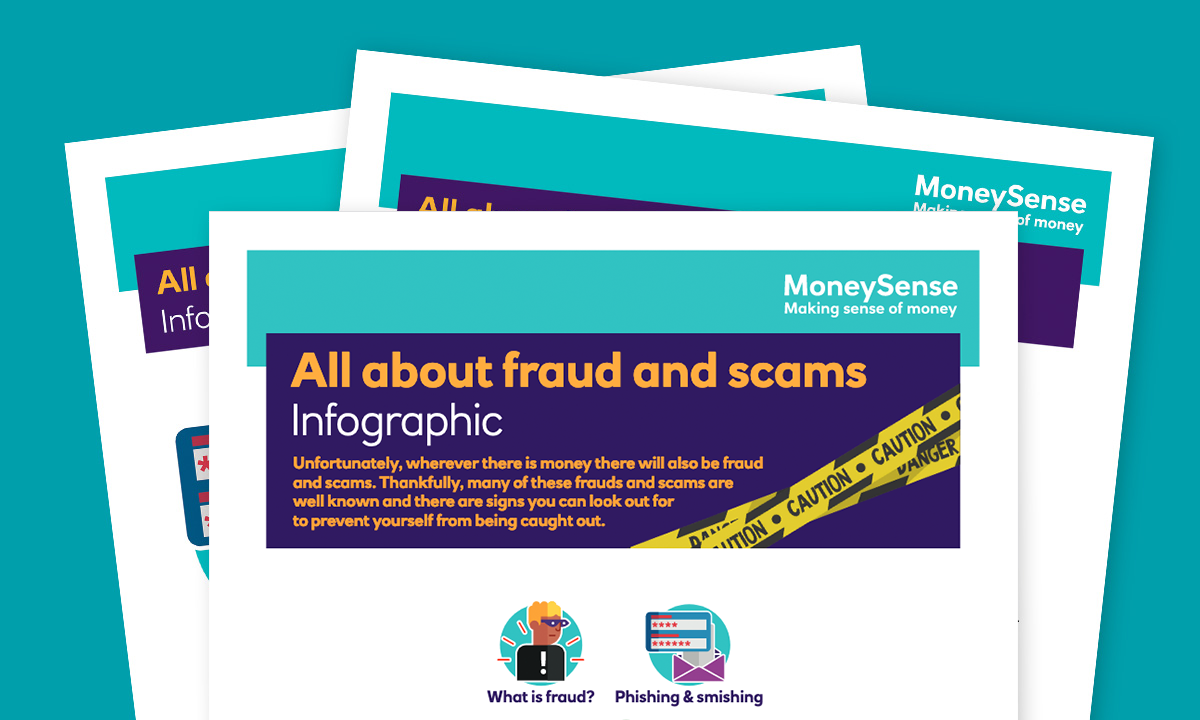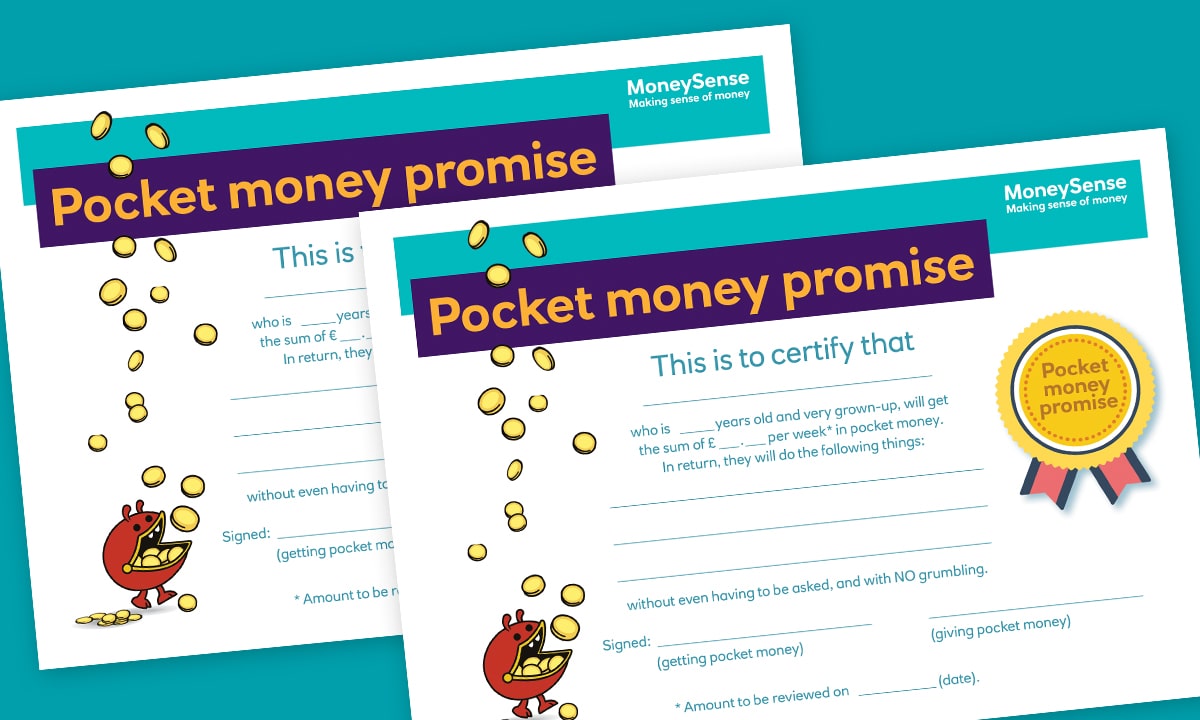How to help your child stay safe online
Like it or not, scammers are always finding new ways of targeting victims, and thanks to the growth of online gaming and social media children are now even more at risk. So how can you help keep your kids safe as they start to explore the internet?

When it comes to pressing subjects for primary school-aged children, you could be forgiven for thinking that fraud doesn’t need to be top of the list: for a start, there’s no Peppa Pig or Paw Patrol episodes dedicated to it. However, fraud is growing in a number of ways – according to data from UK Finance, the collective voice of the country’s banking and finance industry, a whopping £580 million of unauthorised fraud occurred in the first half of 20231 alone. With research suggesting fraud is a growing threat, and with more and more children going online at an earlier age, it’s a topic that parents should be discussing with their kids.
No longer limited to identity theft and hackers, today’s fraud can occur in multiple ways, and sadly no one is immune. However, the good news is that help is at hand, both to inform you about the dangers and to arm you with the best ways to broach the subject with your children as they begin to explore the online world.
“Most children will learn about online safety at school, but they don’t yet have the life skills to back it up”
What does fraud look like today?
As the internet and social media grows at an exponential rate, so too do the ways in which fraudsters look for ways to scam us. Alongside longer-standing methods including phishing, hacking and malware, today’s scams span multiple platforms and ever-more elaborate schemes. The UK Finance 2023 Annual Finance Report2 found that 78% of fraud cases originated from online sources. Digital fraud can occur across a whole range of mediums – online video games, email, social media and app downloads are just a few ways that scammers can reach us.

We spoke to Liz Stanton MBE, Family Protection Manager at Get Safe Online, the UK’s leading online safety website, to ask her how internet fraud was changing. “Criminals are very canny,” she says. “In online gaming, they assume the identity of their target, so they’ll play alongside kids as if they’re the same age as them, and slowly coerce them into sharing information. On other platforms like YouTube and Facebook they use other mechanisms: ‘like and share’ scams which harvest data, or clone sites and pop-ups promising children they’ve won a shiny prize.”
However, Liz says that we need to keep this threat in perspective and approach the online world in the same way we do the real world. “There are dangers in everything we do, but we don’t want to blow it out of proportion – we just need to be smart about it. You wouldn’t send your child off to their first day of secondary school without doing a prep run with them and showing them where to get on and off the bus. It should be the same online: open conversations about the principles need to be the norm. They need to understand not just the tool, but the process behind it and the dangers associated with it as well as the opportunities.”

For more information on Money Mule schemes, read our helpful fact sheet.
The risk to youngsters
Most social media sites require users to be 13 or over, and Fortnite is rated 12+, so the risk of fraud shouldn’t technically face most primary-aged children. However, as the Ofcom Children and parents: media use and attitudes report 20233 states, “Almost all children aged 12-17 use social media, and nine in ten have least one profile."

“Parents need to be smart when it comes to when they allow their kids to use social media platforms and age-restricted games,” says Liz. “If they’re not yet savvy in the real world, they’re not going to be ready online. But these conversations need to take place either way, since children may find other means to access these worlds.” So, as a parent, what can you do about it?
The golden rule
“The most important thing you can do to avoid your child being the target of online fraud is to be honest,” says Zara D’Souza, a MoneySense Volunteer and Community Banker from South London. “Talking to your child about the potential dangers before they go online is important. I liken it to learning to drive: you wouldn’t get your licence without knowing the rules of the road. Encourage them to talk to you and ask you if they encounter anything they’re unsure of.”
The expert take
“Most children will learn about online safety at school, but they don’t yet have the life skills to back it up,” says Liz. “Luckily, there are lots of tools and resources out there to help protect you and your children against online fraud.” Here are eight steps she recommends families take when they’re going online.
1. PARENTAL CONTROLS:
“There are settings for absolutely everything, but you have to be vigilant – are your children using a hand-me-down device that doesn’t have the appropriate settings? Is your family computer shared, in which case does everyone have a private log-in? You also need to keep checking the settings are correct as children are tech savvy and can find their way around them if they want to.”
2. TALK ABOUT IT:
“Before they use a device for the first time, sit down and talk to your child about it so they know what is and isn’t appropriate. If it’s a game, play it with them: that way not only do you understand the mechanisms of the game but your child will feel able to discuss it with you if anything happens that they’re unsure about. Likewise, agree boundaries of when and how long they’re allowed to play.”
3. DON'T SAVE YOUR DETAILS:
“Some games will require a bank card in the set up, but don’t save them – that way you won’t be caught out when your child is tempted to buy new add-ons like skins or V-Bucks. Better still, if they have birthday or pocket money, you could load that onto a prepaid card so that there’s a limit to what they spend, and it’s their own money they’re parting with. It’ll make them consider the purchase more carefully.”
4. ENSURE YOUR TECH IS UP TO DATE:
“Make sure your devices are running on the most up to date software, and ensure you have antivirus protection – don’t just rely on pop-up blockers and filters. Scammers are always working on new ways to get into your data.”
5. TURN OFF LOCATION SETTINGS AND BLUETOOTH:
“Many games, apps and websites ask for access to this information in their T&Cs – don’t accept. Better yet, see if there’s a way for your child to access the games without being online as they play.”
6. USE STRONG PASSWORDS:
“Encourage your child to come up with a strong password – make sure it isn’t anything do with them, or their favourite things, which makes it easier for others to guess. Ensure they tell you, a trusted adult, but never share it with anyone else – not even friends.”
7. GAUGE THE AGE:
There’s a good reason why games, apps and social media sites have age restrictions. Ultimately, every parent knows their child and will decide if they’re ready to be active on these. Check out the Net Aware website by the NSPCC – it’s a great resource for finding out more about each game or app and will help you assess their suitability.”
8. DON’T BE AFRAID:
“With so much to think about and so much negative press, it’s easy to forget that this technology can also be really positive, teaching some valuable life skills and encouraging kids to interact. The best approach is always to have an open dialogue and agree family rules up front. Remember that parents have to observe those rules, too – no phones at the dinner table includes you, too!”
Sources:
1 UK Finance: 2023 Half Year Fraud Report (October 2023)
2 UK Finance: Annual Fraud Report 2023 (May 2023)
3 Ofcom: Children and parents: media use and attitudes report 2023 (March 2023)

 Information:
Information: 
 Interactive activity:
Interactive activity: 

 Articles:
Articles: 
 Poster:
Poster: 


